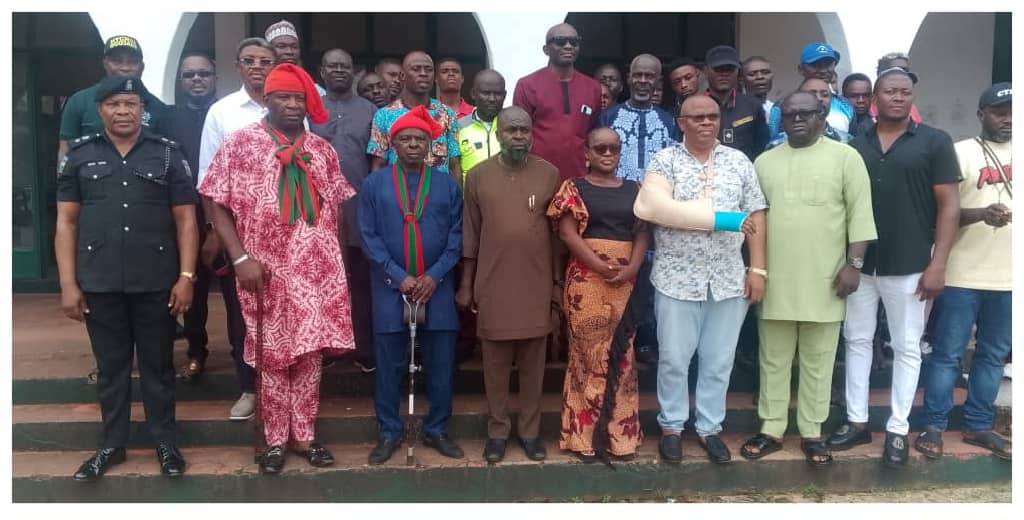The place of promotion
This is the third in the series of articles being written to advise the President of the Federal Republic of Nigeria on what must be done in order to grow the non-export volume to match and even surpass that of crude oil and gas exports. The focus of this article has to do with policies the government must implement to support the promotion of Nigerian products in the export market. The policies relating to the aggressive promotion of non-oil exports are aimed at growing non-oil exports through the creation of demand for Nigerian products. This involves the creation of awareness about the exportable products of Nigeria in various export markets around the world.
Since the government cannot promote each and every product that is currently being exported from Nigeria, then the selection of items to be targeted by the export promotion policy of the government should be based on the impact of the increased export of these products, job creation, poverty eradication, reduced inequality, forex exchange inflow and the growth of gross domestic products in the domestic market. The recommended criteria for selecting the products to be considered in the export promotional policy of the government should include:
- Market Demand: Products with high demand in international markets are preferred to ensure export success.
- Competitive Advantage: Products in which Nigeria has a competitive advantage or unique selling points compared to other countries.
- Quality Standards: Products that meet international quality standards to ensure acceptance in target markets.
- Sustainability: Products that can be produced sustainably without harming the environment or depleting natural resources.
- Value Addition: Products that have the potential for value addition through processing or packaging to increase their export value.
- Market Access: Products that have the potential to access key export markets and comply with trade regulations.
The question, therefore, is which of the items produced in Nigeria meet these criteria? There is no need to reinvent the wheel because the product Nigerian Export Promotion Council (NEPC), in its Zero Oil Plan, already used some of these criteria to identify the products that Nigeria should aggressively promote for export in order to grow its export volume. The aim of this plan is to diversify Nigeria’s economy away from oil by promoting non-oil products for export. The NEPC identified 22 priority products and divided them into two categories as listed below:
Category A: Petrochemicals & Methanol, Soybean, Sugar, Cotton & Yarn, Nitrogenous Fertilizer & Ammonia, Palm Oil, Rice, Rubber, Hides and Leather, Cocoa and Gold.
Category B: Cement and Clinkers, Tomato (fresh and partly processed), Banana & Plantain, Oranges, Cashew, Cassava, Sesame, Spices, Ginger, Shea Butter and Cowpea.
After deciding on the product to be promoted in the export market, other important considerations in the government policy on export promotion include market research, trade agreements, export incentives, infrastructure development, export financing, quality standards and certification, market access assistance, and capability building on export readiness.
Market Research: Understanding the market dynamics in the export markets is crucial for developing effective export promotion strategies. Therefore, the government’s export promotional policy must include conducting thorough market research to identify target markets for the selected products, consumer preferences in the market, trends in demands, and current and potential competitors.
Trade Agreements: Leveraging free trade agreements is very important for any country that wants to grow its trade volume. Therefore the government needs to consider existing trade agreements and partnerships that can facilitate access to international markets. This means negotiating favourable trade deals to reduce trade barriers and promote exports to the major markets of the selected products.
Export Incentives: Since the country is in dire need of export in order to generate foreign exchange, there is a need to encourage different businesses to consider investment in the non-oil export sector. The proposed incentives can be both pre and post-export in its implementation. It should be designed in such a manner that the pre-export incentive reduces the cost of capacity building and mentoring programmes for export readiness, while the post-export incentives should involve giving a grant to the exporter based on the value of the shipment.
Infrastructure Development: In order to make the item of export competitive, it is important to reduce the cost of doing business. This can be achieved by building both hard and soft infrastructure that reduces the cost of exportation. The hard infrastructure includes building infrastructure that facilitates rail transportation, good roads to increase the speed of delivery, and power to reduce the cost of production. The soft infrastructure includes the deployment of applications (single window for trade) that fully automate and streamline the export process and documentation
Export Financing: To significantly grow any nation’s non-export volume, there is a great need for a policy that boosts the funding capacity of export credit agencies. This would enable them to provide trade finance instruments (like export credit guarantee and export credit insurance) to support export transactions and deploy single-digit export financing to boost the trade volume of exporters.

Quality Standards and Certification: One of the major challenges confronting the growth of non-oil export in Nigeria is the issue of rejection at the destination port due to the low quality of the item of export. The government needs to put an end to this menace to grow the non-oil export volume. In order to do this, there must be a policy in place that sets a minimum standard for any item of shipment, particularly agricultural commodities, and the policy must also mandate customs to ensure that no product with low-quality specifications is allowed for shipment out of any port in Nigeria.
Market Access Assistance: One of the reasons many exporters are able to do a few shipments every year is that they have access to only a few buyers in the export market. This also explains the reason why many intending exporters find it difficult to start a business. This, therefore, makes it very imperative for the government to implement policies that complement the efforts of businesses that want to gain access to different export markets around the world.
READ ALSO;Tinubu’s policies yielding positive results – Deputy Senate President
Capability Building on Export Readiness: Export readiness is a multifaceted concept that involves the ability of a company to successfully enter the export market, sustainably compete in the market and significantly grow its market share until it becomes established in the market. To grow the non-oil export volume, the government needs to implement a policy that ensures that all intending exporters are made ready through export readiness assessment and capacity-building programmes to bridge the gaps revealed by the outcome of the assessment.
Finally, I strongly believe that if the policies suggested in this write-up are considered with necessary modifications and implementation, it will help the respective government agencies achieve the objective of growing the non-oil export sector to become a major foreign exchange earner for the country.
Bamidele Ayemibo is the chief executive officer at 3TImpex Trade Consulting
Support PREMIUM TIMES’ journalism of integrity and credibility
At Premium Times, we firmly believe in the importance of high-quality journalism. Recognizing that not everyone can afford costly news subscriptions, we are dedicated to delivering meticulously researched, fact-checked news that remains freely accessible to all.
Whether you turn to Premium Times for daily updates, in-depth investigations into pressing national issues, or entertaining trending stories, we value your readership.
It’s essential to acknowledge that news production incurs expenses, and we take pride in never placing our stories behind a prohibitive paywall.
Would you consider supporting us with a modest contribution on a monthly basis to help maintain our commitment to free, accessible news?
Make Contribution
TEXT AD: Call Willie – +2348098788999

© Premium Times









